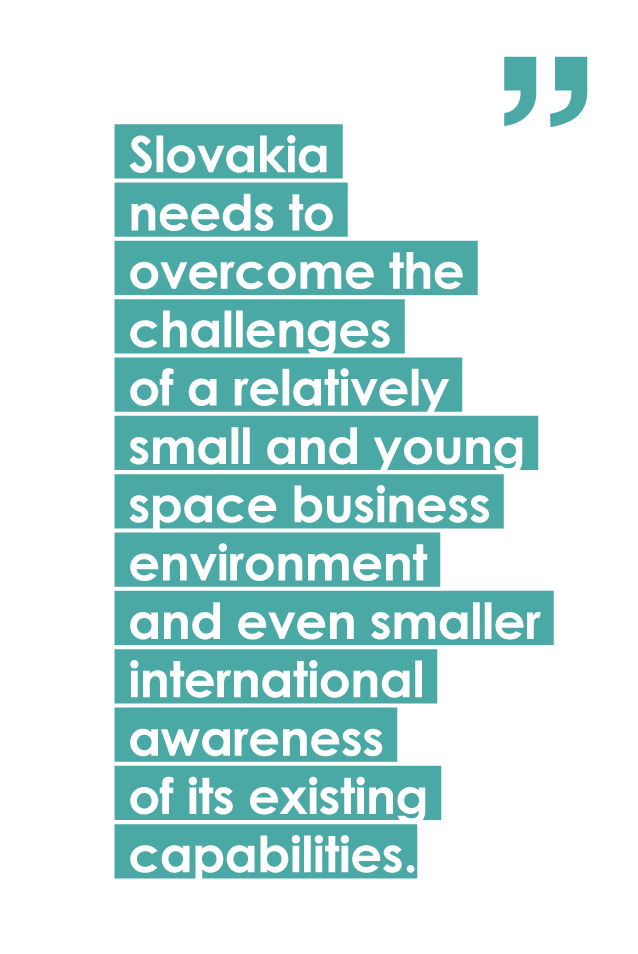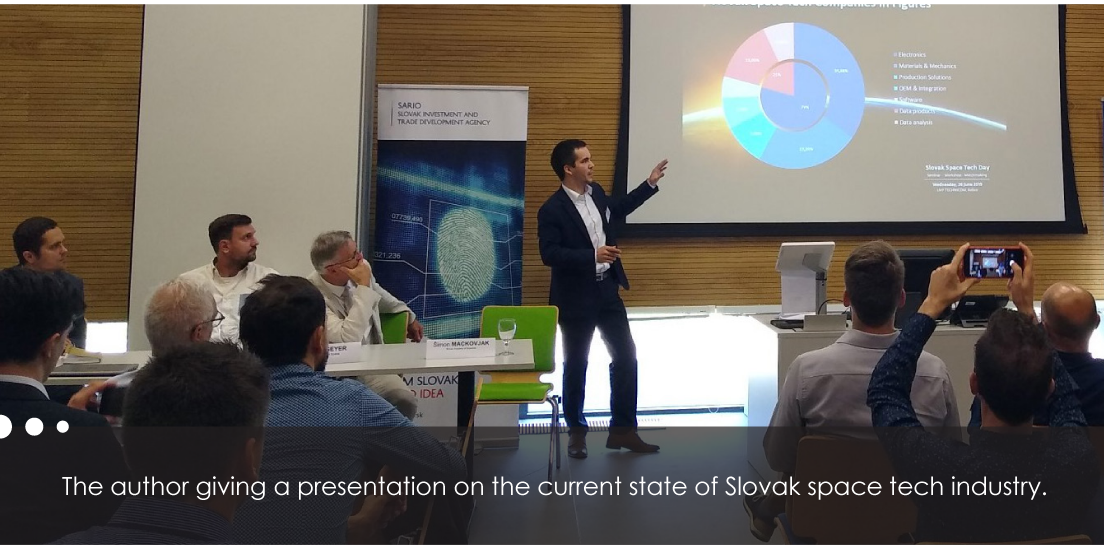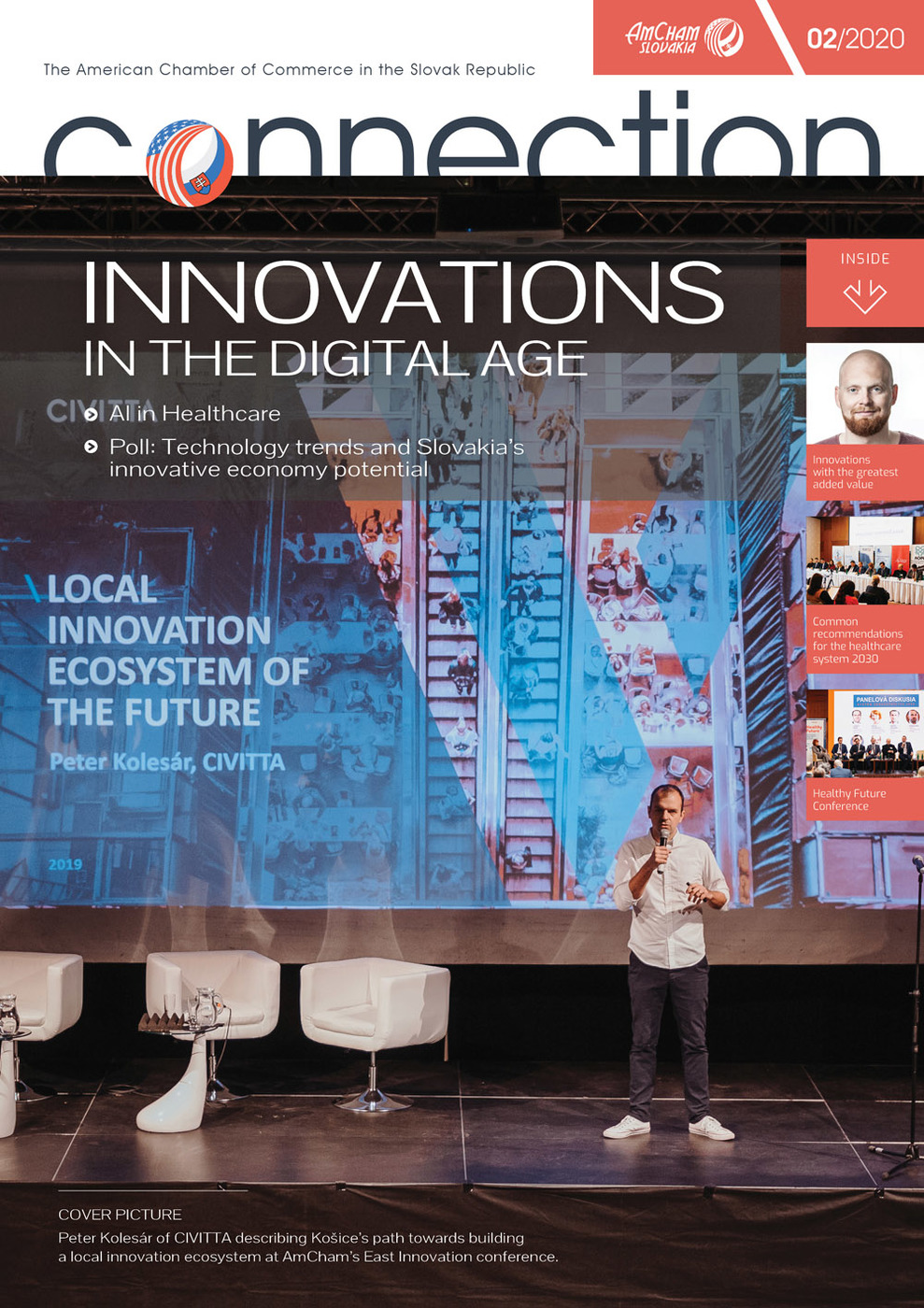Just as significant is the trend of a growing number of companies involved, including SMEs and even startups, which is partly a consequence of the creation of these new markets as well as a result of constantly decreasing costs of access to space. And last but not least, observing the first two trends and considering the sector as a good socio-economic investment, there is a growing number of countries getting interested in direct involvement in space-related business and R&D activities.
Slovakia is one of these “emerging space countries“. Despite having several decades of experience in space research, it only now enters this new era of developing its space legislation and industry. Slovakia needs to overcome the challenges of a relatively small and young space business environment and even smaller international awareness of its existing capabilities.
In order to do so, the country needs to unlock the full potential of both its companies with spin-in capabilities – working in different sectors but using relevant technologies and having relevant experience, as well as its R&D institutions and universities with strong history and current competences (the involvement of the Institute of Experimental Physics of the Slovak Academy of Sciences in Košice in several significant international missions such as Rosetta, BepiColombo, JUICE, and JEM-EUSO offers a particularly impressive example).
Even though Slovakia is not yet a member of the European Space Agency, which is a significant limitation for the space industry development, there are already more than 20 companies active in this sector in the country. Approximately half of them are focused on the so-called upstream segment covering a wide range of space hardware development and production activities and, moreover, even full mission integration for small satellites. The other half are so-called downstream companies utilizing space data to create various applications that find its use on Earth. Some of them are aimed at specialized B2B markets providing valuable solutions for cities, energy companies or farmers, while others like satellite navigation are widely-used by millions of people every day.

Apart from that, there are dozens of other companies with a strong potential of entering the sector. Most of them are currently focused on high-precise machinery and electronics, however, there is also a growing number of Slovak ICT companies getting interested in space. Especially for the last category, the opportunities within the sector are very broad, particularly in the downstream segment where, compared to the highly demanding space hardware area, it is relatively simple to use satellite data (e.g. from EU’s Galileo and Copernicus programs) and turn them into useful and marketable solutions.
Understanding this potential, in the summer of 2019, the Slovak Investment and Trade Development Agency (SARIO) launched a new initiative called SARIO Diversification Services aimed at supporting diversification of Slovak companies towards promising high-tech sectors. Currently, SARIO Diversification Services are systematically focused on three areas: space industry, aviation industry, innovative mobility – all having a solid potential spin-in base among the traditionally strong sectors of the Slovak economy, such as machinery, electronics, ICT or even automotive.
Space-related activities within SARIO Diversification Services are primarily focused on helping new companies to enter the sector and on growing their partnership network. That requires analyzing the existing space environment and identifying its strengths as well as weak points in order to create efficient procurement opportunities and thus help the companies enter new international projects and value chains. At the same time, it requires exploring related fields and searching for companies possessing relevant technology and experience and subsequently helping them to utilize those in the space sector.
Along with consultations and active participation in events aimed at identifying new partners among foreign companies and institutions (e.g. Italian Space Agency, German Space Agency and Israeli Space Agency) as well as raising their awareness about the Slovak industry and R&D capabilities, we are also organizing the Slovak Space Tech Day, which will be held for the second time later this year.
Without any doubt, space is a complex and difficult sector. On the other hand, there is no such frontier of the humankind’s R&D capabilities that could better demonstrate one’s technological potential. As Slovakia is now a country aiming at further qualitative growth of its economy and at the same time an emerging space country finishing its ESA PECS (Plan for the European Cooperating States), it is extremely important to ensure that our small, yet dynamically growing space business sector is ready for the upcoming new challenges and possibilities.




Follow us